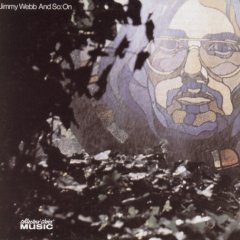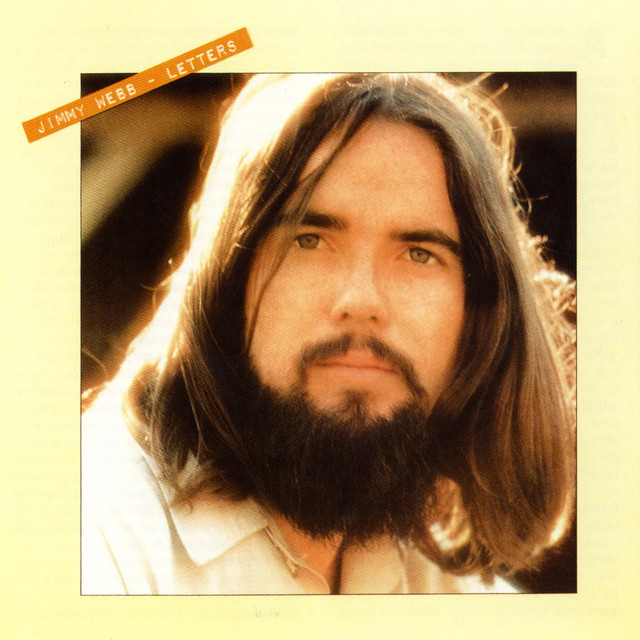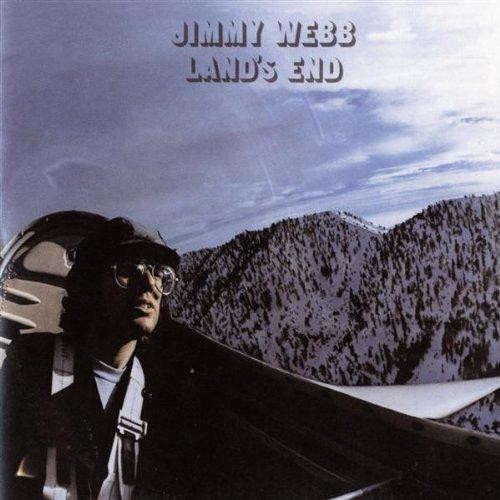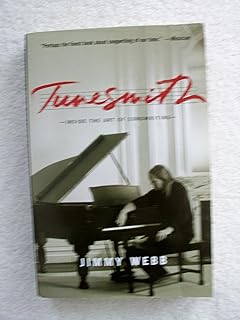By Russ
If you enjoyed songs like “Up, Up and Away“, “By the Time I Get to Phoenix“, “MacArthur Park” and “Wichita Lineman“, you were digging some of the lush songwriting of Jimmy Webb.
Webb’s accomplishments as a composer, arranger, and producer demonstrate beyond question that he remains as important and vital a cultural figure today as he was over thirty years ago. Embraced by his peers, he has influenced and affected some of the finest musical talents of our time.
Decades after he sold his first song, Webb’s influence on his fellow musicians is ongoing. Famed rock singer-songwriter Bruce Springsteen has acknowledged that his own 2019 album Western Stars was profoundly impacted by Webb’s music, and country music star Keith Urban cites Webb as his earliest songwriting inspiration.
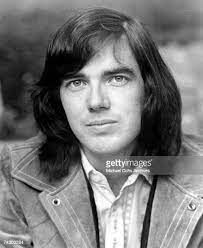



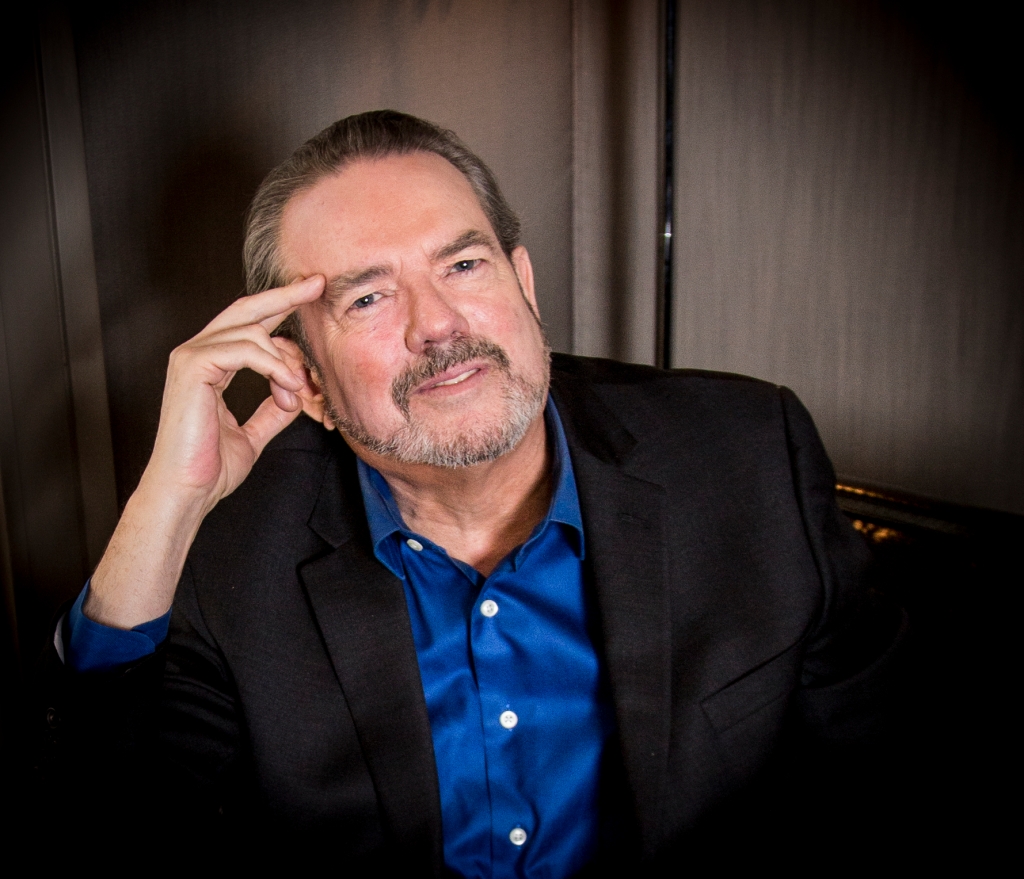
~ Jimmy Webb ~
born on August 15, 1946
VIDEOS
.
.
Sinatra would go on to praise “By the Time I Get to Phoenix” as “the greatest torch song ever written.”
.
.
.
Richard Harris / Macarthur Park / written by Jimmy Webb
.
.
.
.
Early life
Webb was born on August 15, 1946, in Elk City, Oklahoma and raised in Laverne, Oklahoma. He grew up in a religiously conservative family; His father, Robert Lee Webb, was a Baptist minister and veteran of the United States Marine Corps who presided over rural churches in southwestern Oklahoma and west Texas. With his mother’s encouragement, Webb learned piano and organ.
During the late 1950s, Webb began applying his creativity to the music he was playing at his father’s church, frequently improvising and rearranging the hymns.
By the age of 12 he was involved in show business: playing in the choir of his father’s churches, accompanied by his father on guitar and his mother Sylvia on accordion. His father restricted radio listening to country music and white gospel. He began to write religious songs at this time, but his musical direction was soon influenced by the new music being played on the radio, including the music of Elvis Presley.
In 1961, at the age of 14, he bought his first record, “Turn Around, Look at Me” by Glen Campbell. Webb said he was drawn to the singer’s distinctive voice, and, they became friends a few years later.
In 1964, Webb and his family moved to Southern California, where he attended San Bernardino Valley College, studying music. During this time, he lived in Colton, California, with his family.
Following the death of his mother, Sylvia, in 1964, his father made plans to return to Oklahoma. Webb decided to stay in California to continue his music studies and to pursue a career as a songwriter in Los Angeles.
Webb would later recall his father warning him about his musical aspirations, saying, “This songwriting thing is going to break your heart.” Seeing that Jimmy was determined, however, his father gave him $40, saying, “It’s not much, but it’s all I have.”
After transcribing other people’s music for a small music publisher in Hollywood, Webb was signed to a songwriting contract with Jobete Music, the publishing arm of Motown Records.
Early success, 1965–1969
The first commercial recording of a Jimmy Webb song was “My Christmas Tree” by The Supremes, which appeared on their 1965 Merry Christmas album.
.
The following year, Webb met singer and producer Johnny Rivers,
Rivers signed him to a publishing deal and recorded his song “By the Time I Get to Phoenix” on his 1966 album Changes.
In 1967, Rivers released Rewind, an album featuring seven Jimmy Webb songs, including “Do What You Gotta Do” and “Tunesmith“, a song also recorded that year by Vikki Carr for her album It Must Be Him.
That same year, Johnny Rivers turned to Webb for material for a new group Rivers was producing called the 5th Dimension. Webb contributed five songs to their debut album, Up, Up and Away, including the title track, which was released as a single in May 1967 and reached the Top Ten.
The group’s follow-up album, The Magic Garden, was also released in 1967 and featured eleven additional Webb songs, including “Worst That Could Happen“
In November 1967, Glen Campbell released his version of “By the Time I Get to Phoenix“, which reached number 26.
.
At the 1968 Grammy Awards, held in February 1968, “Up, Up and Away” was named Record of the Year (1967) and Song of the Year (1967). “Up, Up and Away” and “By the Time I Get to Phoenix” received eight Grammy Awards between them.
In 1968, Time acknowledged Webb’s range, proficiency, and “gift for strong, varied rhythms, inventive structures, and rich, sometimes surprising harmonies”. That year, the string of successful Webb songs continued with the 5th Dimension’s “Paper Cup” and “Carpet Man” reaching the Top 40, Glen Campbell’s “Wichita Lineman” selling over a million copies,
Johnny Maestro & the Brooklyn Bridge scored a gold record with “Worst That Could Happen“, a song originally recorded by the 5th Dimension.
—
Webb formed his own production and publishing company that year, Canopy, and scored a hit with its first project, an unlikely album with Irish actor Richard Harris singing an album of all Webb songs. One of the songs, “MacArthur Park“, was a long, complex piece with multiple movements that was originally rejected by the group The Association. Despite the song’s seven minute, twenty-one second length, Harris’s version reached #2 on the Hot 100 on June 22, 1968, and #4 on the UK Singles Chart on July 24. The album, A Tramp Shining, stayed on the charts for almost a year. Webb and Harris produced a follow-up album, The Yard Went On Forever, which was also successful.
Further raising Webb’s stature as a songwriter, “By the Time I Get to Phoenix” was performed by Frank Sinatra on the latter’s 1968 album Cycles. Sinatra would go on to praise “By the Time I Get to Phoenix” as “the greatest torch song ever written.”
At the 1969 Grammy Awards, Webb accepted awards for “By the Time I Get to Phoenix“, “Wichita Lineman“, and “MacArthur Park“.
In 1969, Glen Campbell continued the streak of Webb hits with the gold record “Galveston” and “Where’s the Playground Susie“. Webb and Campbell had first met during the production of a General Motors commercial. Webb arrived at the recording session with his Beatle-length hair and approached the conservative singer, who looked up from his guitar and said, “Get a haircut.”
That same year, two Webb songs became hits for the second time with Isaac Hayes’ soulful version of “By the Time I Get to Phoenix” and Waylon Jennings’ Grammy-winning country version of “MacArthur Park“.
On Frank Sinatra’s acclaimed 1969 album My Way, the singer dove deeper into Webb’s songbook with a version of “Didn’t We?” — a number that was originally done by Richard Harris in 1968 and released as the B-side of “MacArthur Park“.
Webb finished up 1969 by writing, arranging, and producing Thelma Houston’s first album, Sunshower.
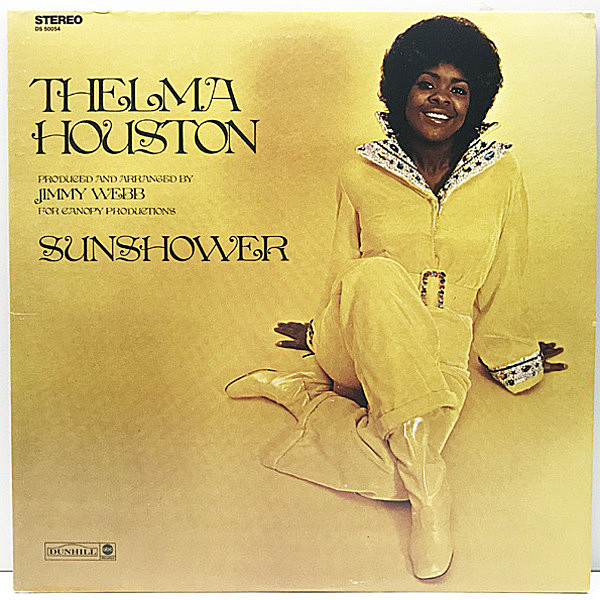

—
As the decade came to a close, so too did Webb’s string of hit singles.
Jimmy began to withdraw from the formulaic process in which he worked and began to experiment with his music. He started work on a semi-autobiographical Broadway musical called His Own Dark City, which reflected the emotional displacement he felt at the time.
—
Singer-songwriter years, 1970–1982
Webb’s career as a singer-songwriter got off to a rough start with the “counterfeit” album Jim Webb Sings Jim Webb, released by Epic Records in 1968. According to Webb, the album was produced “by a bunch of ruffians from some old demos of mine and tarted up to sound like ‘MacArthur Park‘”.
Beginning in 1970, Webb released six original albums of his own songs:
- Words and Music (1970),
- And So: On (1971),
- Letters (1972),
- Land’s End (1974),
- El Mirage (1977), and
- Angel Heart (1982).
Despite the critical reception that followed each of these projects, Webb has never been as successful as a performer as he has been as a songwriter and arranger. Each album was noted for its inventive music and memorable lyrics.
—-
Webb’s debut album as a performer, Words and Music, was released on Reprise Records in late 1970 to critical acclaim. Rolling Stone writer Jon Landau called one of the album’s cuts, “P.F. Sloan“, a “masterpiece [that] could not be improved upon”.
The album also features the ambitious song trilogy “Music for an Unmade Movie“.
—
Webb’s 1971 follow-up album, And So: On, proved equally appealing to critics.
Rolling Stone declared the album “another impressive step in the conspiracy to recover his identity from the housewives of America and rightfully install him at the forefront of contemporary composers/performers.” The album features the songs “Met Her on a Plane“, “All My Love’s Laughter“, and “Marionette“.
.
Also in 1971, the Three Degrees are featured in the movie The French Connection giving a rendition of Webb’s song “Everybody Gets To Go To The Moon“, originally recorded in 1969 by Thelma Houston.
—-
Webb’s 1972 album Letters, which features his own rendition of “Galveston“, met with similar praise.
Note the treatment of Webb’s Galveston by Glen Campbell back in 1969…
.
Music critic Bruce Eder called Letters the “most surprising, diverse, and possibly the most satisfying of all of Jimmy Webb’s early solo LPs” and “arguably the best of Webb’s solo albums”. In his review of the album, Peter Reilly of Stereo Review wrote, “Jimmy Webb is the most important pop music figure to emerge since Bob Dylan.” The album also features the songs “Campo de Encino“, an homage to his park-like residence in Encino, California, during the 1970s, “When Can Brown Begin“, and “Piano“.
—-
In 1974, Webb released Land’s End on Asylum Records.
Unlike his previous albums, which tended to be underproduced, Webb was able to achieve a more heavily produced pop/rock sound on Land’s End, which was recorded in England with the help of an all-star session band that included Joni Mitchell, Ringo Starr, and Nigel Olsson. The album contains “a thematic consistency in that most of its songs were tales of romantic discord”. While Webb continued to improve as a singer, he “still hadn’t found an identity as a solo artist”. The album features the songs “Ocean in His Eyes“, “Just This One Time“, and “Crying in My Sleep“.
—
In 1977, Webb released El Mirage on Atlantic Records. Produced, arranged, and conducted by The Beatles‘ former producer, George Martin, the album was Webb’s “most polished effort yet as a performer”.
William Ruhlmann observed, “These were lush tracks full of tasty playing and warm string charts on which Webb’s thin tenor was buoyed by numerous background vocalists, the whole an excellent example of the style known as ‘West Coast pop’.” The album contains several strong compositions, including “The Highwayman“.
“The Highwayman” would later become a number one country hit for Waylon Jennings, Willie Nelson, Johnny Cash, and Kris Kristofferson, who named their super group The Highwaymen after the song. Their version of “The Highwayman” won a Grammy Award for Best Country Song. El Mirage also features the songs “If You See Me Getting Smaller I’m Leaving“, a newly arranged version of “P.F. Sloan“, and “The Moon is a Harsh Mistress“, which had already been recorded by Joe Cocker, Glen Campbell, and Judy Collins. Despite the positive critical response to the album, El Mirage did not succeed in redefining Webb as a performer as he had hoped.
—
Webb’s final solo album from this period, Angel Heart, was released in 1982 on Lorimar Records.
Like its predecessor, the album drew upon the talents of top Los Angeles session musicians to produce a classic West Coast pop sound, enhanced by guest vocal harmonies by Gerry Beckley, Michael McDonald, Graham Nash, Kenny Loggins, Daryl Hall, and Stephen Bishop. Unlike his previous solo albums, however, Angel Heart lacked the quality material usually associated with the composer. Apart from “Scissors Cut” and “In Cars“, which were previously recorded by Art Garfunkel, the album offered few high points, despite its polished production. A decade would pass before Webb released his next solo album.
—-
Throughout the 1970s and into the 1980s, Webb’s songs continued to be recorded by some of the industry’s most successful artists:
- In 1972, Jimmy Webb produced The Supremes‘ last album featuring Jean Terrell as lead singer, The Supremes Produced and Arranged by Jimmy Webb. Webb is quoted as saying he had a crush on Mary Wilson when he wrote and produced “I Keep It Hid” featuring her on lead vocals.
- In 1977, the initial release of Art Garfunkel‘s Watermark album consisted exclusively of songs by Webb.
- In 1978, Donna Summer‘s disco version of “MacArthur Park” became a multi-million selling vinyl single that was number one on the American pop music charts for three weeks.
- In 1980, Thelma Houston recorded “Before There Could Be Me“, “Breakwater Cat“, “Gone“, “Long Lasting Love“, and “What Was that Song” on her album Breakwater Cat.
- Leah Kunkel recorded “Never Gonna Lose My Dream of Love Again” and “Let’s Begin” for her album I Run with Trouble.
- The latter was performed live in 1980 by the born-again Bob Dylan. Tanya Tucker recorded “Tennessee Woman” on her album Dreamlovers.
- And Frank Sinatra did his own cover of “MacArthur Park” on the 1980 album Trilogy: Past Present Future.
- In 1981, Art Garfunkel recorded “Scissors Cut“, “In Cars“, and “That’s All I’ve Got to Say” for his album Scissors Cut,
- and Arlo Guthrie recorded “Oklahoma Nights” on his album Power of Love.
- In 1982, Linda Ronstadt recorded “The Moon Is a Harsh Mistress” and “Easy for You to Say” on her album Get Closer.
- That same year, Joe Cocker recorded “Just Like Always” on his album Sheffield Steel,
- and the Everly Brothers recorded “She Never Smiles Anymore” on their album Living Legends.
In 1981 Webb moved to New York state, and said, “One day I wondered what happened to the Seventies and all those grandiose schemes.“
Large-scale projects, 1982–1992
From 1982 to 1992, Webb turned his focus from solo performing to large-scale projects, such as film scores, Broadway musicals, and classical music. In 1982, he produced the soundtrack for the film The Last Unicorn, an animated children’s tale, with the musical group America performing five new Jimmy Webb songs: “The Last Unicorn“, “Man’s Road“, “In the Sea”, “Now That I’m a Woman”, and “That’s All I’ve Got to Say“. The rest of the album contains instrumental music composed, arranged, and conducted by Webb. That same year, he composed the soundtrack to all episodes of the TV series Seven Brides for Seven Brothers.
The theme music for the 1984-85 TV sitcom E/R was written by Webb.
Meanwhile, successful artists continued to record his songs:
- in 1985, Glen Campbell recorded Webb’s “Cowboy Hall of Fame” and “Shattered” for the album It’s Just a Matter of Time.
- And heavyweights Johnny Cash, Waylon Jennings, Willie Nelson, and Kris Kristofferson recorded “Highwayman” on the album Highwayman.
- In 1988, Toto recorded “Home of the Brave” on the album The Seventh One.
- Kenny Rankin recorded “She Moves, Eyes Follow” for the album Hiding in Myself.
- And in 1989, Linda Ronstadt recorded the album Cry Like a Rainstorm, Howl Like the Wind, which featured four Jimmy Webb songs: “Still Within the Sound of My Voice” (with Webb playing piano), “Adios” (with orchestral arrangement by Webb), “I Keep It Hid” (with Webb playing piano), and “Shattered“.
- In 1990, John Denver recorded “Postcard from Paris” on the album The Flower That Shattered the Stone.
- In 1991, Kenny Rogers recorded “They Just Don’t Make Em Like You Anymore” on the album Back Home Again.
In 1986, Webb produced a cantata, The Animals’ Christmas, with Art Garfunkel, Amy Grant, and the London Symphony Orchestra. The cantata tells the Christmas story from the perspective of animals.
In 1987, Webb produced the soundtrack for the film The Hanoi Hilton. That same year, he reunited with Campbell for the album Still Within the Sound of My Voice, for which he wrote the title song. They followed this up in 1988 with an album composed almost entirely of Jimmy Webb songs, Light Years. The album included the title song, as well as “Lightning in a Bottle“, “If These Walls Could Speak” (which was also recorded by Amy Grant that year) and “Our Movie“. Two songs from 1982’s Seven Brides for Seven Brothers also appear on the album. The record also included the songs “Other People’s Lives“, “Wasn’t There A Moment“, “I Don’t Know How To Love You Anymore“, and “Is There Love After You“. Several of these songs later ended up on Webb solo albums.
In 1992, Webb completed a musical called Instant Intimacy, which he developed with the Tennessee Repertory Theatre. The musical contained new songs that he and others would later record, including “What Does a Woman See in a Man“, “I Don’t Know How to Love You Anymore“, and “Is There Love After You“. That same year, Webb performed live at the club Cinegrill, performing “What Does a Woman See in a Man” and introducing several additional new songs, including “Sandy Cove” and an old folk hymn, “I Will Arise“.
Solo artist, 1993–present
- Since 1993, Jimmy Webb has produced five critically acclaimed solo albums: Suspending Disbelief (1993),
- Ten Easy Pieces (1996),
- Twilight of the Renegades (2005),
- Just Across the River (2010), and
- Still Within the Sound of My Voice (2013).
He has continued to expand his creative landscape to include musicals, commercial jingles, and film scores.
In 1994, Webb teamed with Nanci Griffith to contribute the song “If These Old Walls Could Speak” to the AIDS benefit album Red Hot + Country produced by the Red Hot Organization.
In 1997, Webb co-produced Carly Simon‘s “Film Noir” album and contributed his vocals, orchestration, and piano skills to the project, which was filmed for an AMC documentary (which premiered in September 1997). He also co-wrote the song “Film Noir” with Simon. Webb reprised his role as arranger and co-producer on Simon’s 2008 album, “This Kind of Love“.
In 1998, Webb completed his first book, Tunesmith: Inside the Art of Songwriting, which was published by Hyperion Books.
It was well received by songwriters and performers and became a best-seller. One book reviewer described it as “a companion every serious songwriter should read, and read again, and keep handy for referral”.
In 2007, he released a live album of his show, Live and at Large (2007), which was recorded in the United Kingdom. The album included personal stories and anecdotes about Richard Harris, Waylon Jennings, Harry Nilsson, Glen Campbell, Art Garfunkel, Frank Sinatra, and Rosemary Clooney.
Webb appears in the 2008 documentary The Wrecking Crew providing thoughtful and descriptive insights into the world of California session musicians in the 1960s.
In June 2010, Webb released Just Across the River, an album of newly arranged Webb songs that featured guest appearances by Vince Gill, Billy Joel, Willie Nelson, Lucinda Williams, Jackson Browne, Glen Campbell, Michael McDonald, Mark Knopfler, J. D. Souther, and Linda Ronstadt.
In 2011, Webb was unanimously elected Chairman of the Songwriters Hall of Fame, replacing Hal David who retired after ten years in that position.
In May 2012, Webb traveled to London to receive the prestigious Ivor Novello Special International Award, which recognizes non-British writers and composers who have made an extraordinary contribution to the global musical landscape.
In September 2012, Fantasy Records released Glen Campbell and Jimmy Webb: In Session, a collaborative album by Glen Campbell and Jimmy Webb. The album and its accompanying DVD were filmed, taped, and recorded in December 1988 in the Hamilton, Ontario studios of CHCH-TV as part of the Canadian concert series In Session.
Decades after he sold his first song, Webb’s influence on his fellow musicians is ongoing. Famed rock singer-songwriter Bruce Springsteen has acknowledged that his 2019 album Western Stars was profoundly impacted by Webb’s music, and country music star Keith Urban cites Webb as his earliest songwriting inspiration.
Webb continues to perform throughout the United States and abroad. In 2017 he published an autobiography, The Cake and the Rain: A Memoir.
Emotional content of songs
While some of Webb’s songs are happy, such as “Up, Up and Away”, he has said that “The territory I tend to inhabit is that sort of ‘crushed lonely hearts’ thing. The first part of a relationship is usually that white-hot centre when all the happy songs come. When that’s gone it can be devastating, and that’s when the sorrowful songs come.”[
Binge Section
Here you can feast on in-depth information about Jimmy Webb.
–oo–


